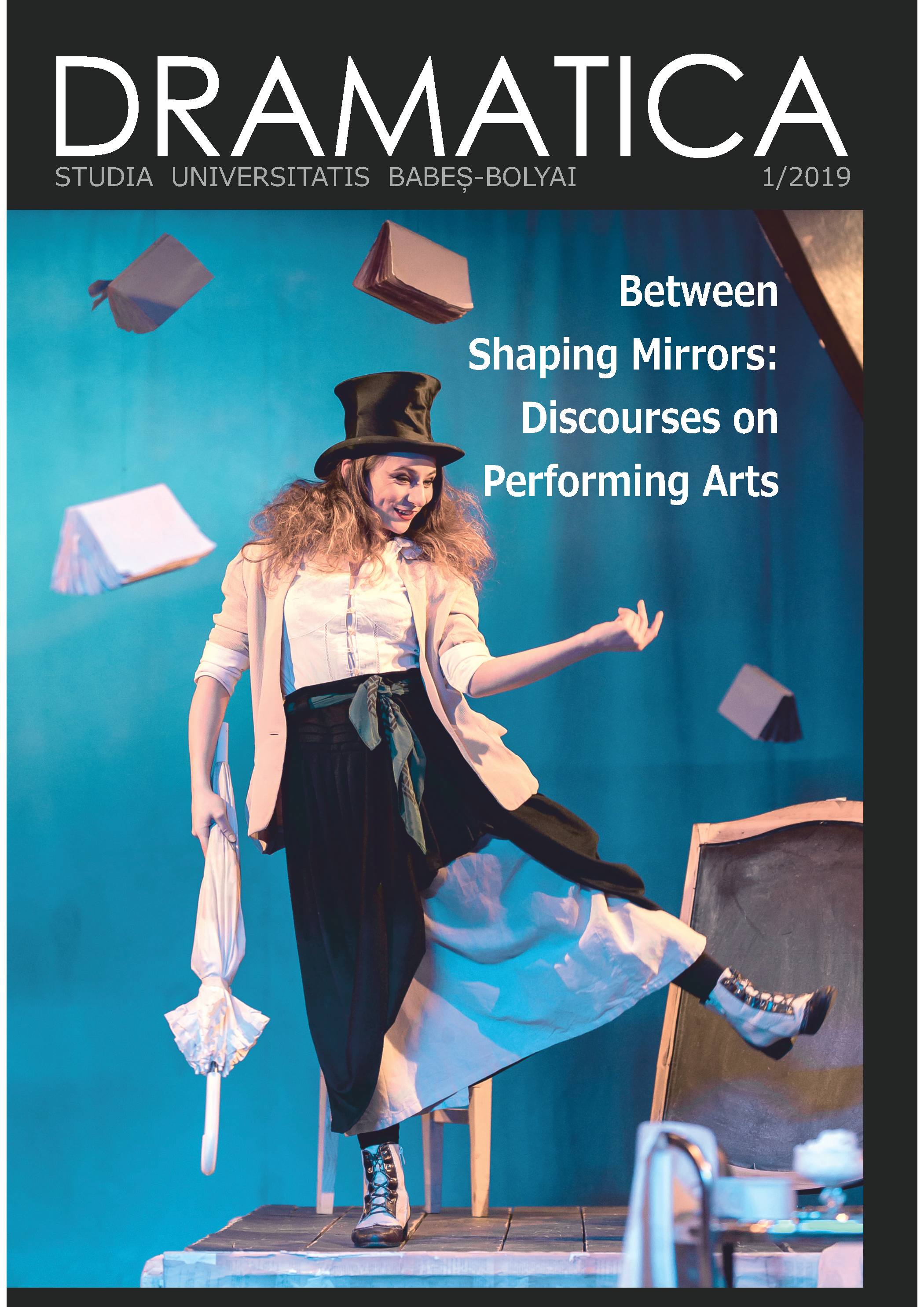Political Configuration in the Dramaturgy of AbdulRasheed Adeoye
DOI:
https://doi.org/10.24193/subbdrama.2019.1.08Keywords:
Dramaturgy, Neo-alienation, Political Configuration, Aesthetics.Abstract
Colonial and postcolonial African dramaturgy was influenced by the politics of the society in which they were created. They reflected the political upheavals, corruption, socio-political decadence and laxity portrayed by political leaders. In fact, these dramas such as the works of the radical Ngugi Wa Thiong’o, Wole Soyinka, Femi Osofisan, Bode Sowande, Sam Ukala, and Benedict Binebai amongst others were/are political constructs. However, one postmodern dramaturge who has fully explored the social and the political in his works in theory and praxis, is AbdulRasheed Adeoye. The authenticity of his theatre does not only stem from the political consciousness of his creative works, but also, his crystallization of a dramatic theory, he termed Neoalienation theory. How unique is this theory, and how relevant are the themes and content of his works to the political situation of present-day Nigeria? To this end, this study critically investigates the poetics of politics in the dramaturgy of AbdulRasheed Adeoye. It further examines Adeoye’s neoalienation theory, in consonance with Bertolt Brecht’s Epic Theatre, and the political configurations of Adeoye’s dramaturgy.References
Adeniyi, Tola. “Theatre and Politics in Nigeria.” In Theatre and Politics in Nigeria, edited by Jide Malomo and Saint Gbilekaa, i–vii. Ibadan: Caltop Publications, 1993.
Adeoye, AbdulRashid. The Killers: A Social Drama. Ilorin: Dept. of the Performing Arts, University of Ilorin, 2009.
Adesina, Foluke. “Theatre and Media in Nigerian Politics.” In Theatre and Politics in Nigeria, edited by Jide Malomo and Saint Gbilekaa, 116–22. Ibadan: Caltop Publications, 1993.
Binebai, Benedict. “Voice Construction in the Postcolonial Text: Spivakian Subaltern Theory in Nigerian Drama.” African Research Review 9, no. 4 (October 27, 2015): 206. https://doi.org/10.4314/afrrev.v9i4.16.
Boal, Augusto. Theatre of the Opressed. London: Pluto Press, 1979.
Eagleton, Terry. Marxism and Literary Criticism. London: Methuen, 1976.
Ejeke, Solomon. “Drama and Political Emancipation in Africa.” In Music Scholarship, Culture and Performance Challenges in 21st Century Africa: A Critical Resource Book in Honour of Emurobome Idolor, edited by Emurobome Idolor, Kenneth Eni, Benedict Binebai, and Solomon Ikibe, 468–77. Lagos: Bahiti and Balila Publishers, 2016.
Freire, Paulo. Pedagogy of the Opressed. New York: Continuum, 1982.
Gbilekaa, Saint. “Theatre and Political Change in Nigeria since Independence.” In Theatre and Politics in Nigeria1, edited by Jide Malomo and Saint Gbilekaa, 1–11. Ibadan: Caltop Publications, 1993.
Obafemi, Olu. Public Mediation and Society: Cultural/Creative Industries, Literature, Theatre and the National Economy. Lagos: Concept Publications Limited, 2017.
Okpadah, Stephen Ogheneruro. “Theatre for Development as a Model for Transformative Change in Nigeria.” Teaching Artist Journal 15, no. 1 (January 2, 2017): 3–8. https://doi.org/10.1080/15411796.2017.1297620.
Sánchez Vásquez, Adolfo. Art and Society : Essays in Marxist Aesthetics. New York: Monthly Review Press, 1973.
Thiong’o, Ngugi wa, and Micere Githae Mugo. The Trials of Dedan Kimathi. London: Heinemann, 1977.
Traoré, Bakary. The Black African Theatre and Its Social Functions. Ibadan: Ibadan University Press, 1972.
Vallins, Gordon. “Drama and Theatre in Education.” In Drama and the Theatre with Radio, Film and Television. An Outline for the Student. London: Routledge and Kegan Paul, 1971.
Wa Thiong’o, Ngugi. Writers in Politics. London: Heinemann, 1981.
Downloads
Published
How to Cite
Issue
Section
License
Copyright (c) 2019 Studia Universitatis Babeș-Bolyai Dramatica

This work is licensed under a Creative Commons Attribution-NonCommercial-NoDerivatives 4.0 International License.


